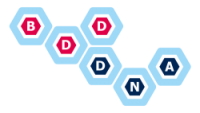Shared Understanding and Collaboration
Behaviour-Driven Development places a strong emphasis on shared understanding between all stakeholders involved in the software development process. This includes developers, testers, business analysts, product owners, and other team members. By fostering a collaborative environment, teams can align their goals and work towards a common understanding of the desired behaviours of the software.
Facilitating Workshops
Workshops are a powerful technique to promote collaboration in BDD. These workshops bring together stakeholders from different roles to discuss and define the desired behaviours and requirements of the software. By facilitating workshops, teams can engage in active discussions, clarify ambiguities, and create a shared understanding of the system’s behaviour. Workshops also provide an opportunity to identify and address potential challenges or conflicts early in the development process.
Refining Requirements through Collaboration
Collaboration plays a crucial role in refining requirements in BDD. By involving stakeholders, developers, and testers in requirement refinement sessions, teams can ensure that requirements are clear, concise, and testable. Regular collaboration sessions allow for continuous feedback and iterative refinement of requirements, reducing the likelihood of misunderstandings and costly rework later in the development cycle.
Conducting Regular Feedback Sessions
Feedback sessions are essential for effective collaboration in BDD. Regularly scheduled feedback sessions provide a platform for stakeholders to review the implemented behaviours, validate assumptions, and provide feedback on the software under development. These sessions promote transparency and allow stakeholders to identify any gaps or discrepancies between the desired behaviours and the actual implementation. Feedback sessions also facilitate early detection of issues, enabling teams to address them promptly.
Leveraging Tools for Collaboration
Collaboration in BDD can be further enhanced by leveraging tools that support shared documentation, communication, and knowledge sharing. Tools like collaborative documentation platforms, issue trackers, and communication channels enable teams to collaborate remotely, capture discussions, and track progress. These tools provide a centralized repository for documentation, test scenarios, and discussions, fostering effective communication and ensuring that everyone is on the same page.
Conclusion
Behaviour-Driven Development thrives on collaboration and effective communication among stakeholders, developers, testers, and business analysts. By emphasizing shared understanding and leveraging techniques such as workshops, requirement refinement sessions, and regular feedback sessions, teams can ensure that the software under development meets the desired behaviours. Furthermore, by embracing collaboration tools, teams can enhance remote collaboration, knowledge sharing, and documentation. In the ever-evolving landscape of software development, strong collaboration and communication are key ingredients for delivering high-quality software solutions that align with user expectations.
Remember, effective collaboration requires active participation, open-mindedness, and a commitment to continuous improvement. By embracing collaborative techniques and fostering a culture of open communication, development teams can unlock the full potential of Behaviour-Driven Development and deliver software that truly meets the needs of its users.


